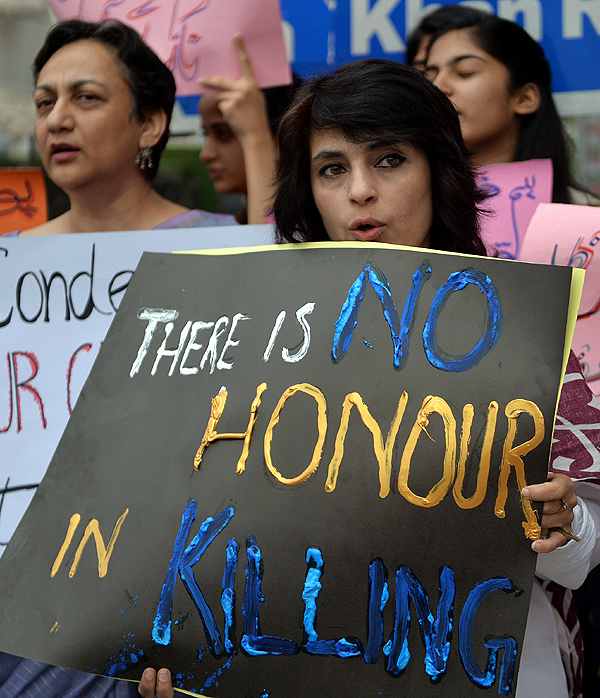Obama and Merkel try to preserve the transatlantic unity against Russia
Monday, May 5th, 2014 4:41:53 by Nadeem Bajwa
President Barack Obama has impose unilateral sanctions against Vladimir Putin ‘s Russia in a bid to preserve the fragile unity between the U.S. and Europe to the Russian challenge. Obama also ruled out sending military aid to the Ukrainian government. Contrary to the view of some of his advisers, Obama prefers to close ranks with European partners, but the price are half measures so far have not deterred Putin in his speech in Ukraine.
The meeting on Friday in Washington, with German Chancellor Angela Merkel, served to narrow the transatlantic message to Putin. If Moscow continues to promote instability in Ukraine and boycotted the elections scheduled for May 25, the U.S. and the EU adopted a new round of sanctions. They will point, as approved in recent weeks, but individuals or companies to key sectors of the Russian economy such as energy, finance and mining.
“If we see incidents and destabilization continue so strong that they prevent the elections on May 25, we will have no choice but to adopt tougher sanctions,” Obama said in a press conference with Merkel in the Rose Garden of the White House. It was the first time the U.S. president put terms and conditions to impose another round of sanctions. ” New sanctions will be inevitable,” concurred Merkel.
Merkel leading a economic power with growing political weight – is a privileged interlocutor of the U.S. on the pulse with Russia through Ukraine, a centerpiece of the strategy of the White House, which sees the challenge to Putin, before However, a European crisis. No Western leader has spoken many times with the Russian president and the German chancellor. Few can boast of the culture and the Russian language, which he learned in the German Democratic Republic, the country where he grew up as well.
Merkel ‘s relationship with Obama bypasses the best. The revelations last year on spying the NSA (National Security Agency, English acronym) to your left Chancellor wounds. “I can not blame him feel aggrieved,” confessed months later the U.S. president to the magazine The New Yorker. U.S. and Germany speak a different language when it comes to electronic espionage.
Obama has promised that the NSA does not spy on the chancellor ‘s or other Allied leaders, but reserves the right to continue watching counselors and ministers and acting in the territory of friendly countries. Merkel insists that the NSA activities are illegal in Germany and taken for unsuccessful trading in a sort of non-aggression pact with Washington on espionage.
Obama and Merkel are calling including Barack and Angela – an example of familiarity for a huge German – but any emphatic expression of friendship has disappeared. Friday ‘s meeting was a working meeting monopolized by the international crisis that worries now in Washington: Ukraine.
Since February, Russia took control of the Ukrainian peninsula of Crimea, the unit with the EU has been a priority for the U.S. president. It has not been easy. While U.S. just has business interests in Russia, major European countries have economies intertwined with that country and, in the case of Germany, dependent on Russian gas.
Hence the greater caution of Europeans when punish Moscow and the ambiguous role of Germany. In Washington, the German chancellor acted as unofficial representative of the EU- 28, fragmented and without a clear policy towards Moscow. And the powerful industrial sector of the country, fearing the economic damage that could cause an escalation of tension and attempts to curb the penalties sectors such as energy.
Ukraine returns the era of geopolitics. Geopolitics of Energy: Washington pushes for Europe to reduce its energy dependence on Russia and North American natural gas amount. And geopolitical plain: NATO occupied during the last decade in wars and missions outside its traditional territory of action, resumed a central place for the U.S. in Europe.
While Obama received Merkel, Secretary of Defense Chuck Hagel, warned in a speech a few blocks from the White House that the Ukraine crisis forces European, including Germany, to spend more on defense.
“Today, America ‘s GDP is smaller than the combined GDP of our 27 NATO allies, but the American defense spending three times that of the allies,” Hagel said. He added, ” Over time, this asymmetrical load threatens the integrity, cohesion and capabilities of NATO. And, ultimately, European and transatlantic security. “
Short URL: https://www.newspakistan.pk/?p=43563

















